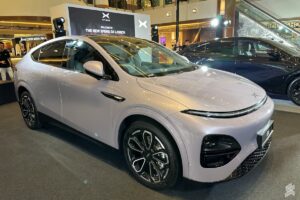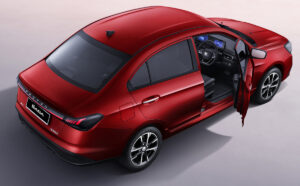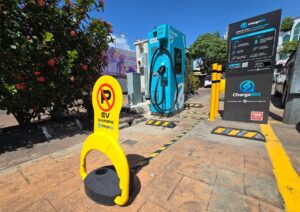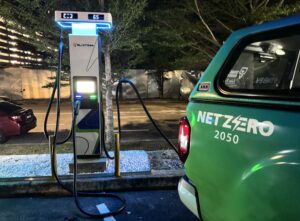The majority of EV chargers in Malaysia are usually put into operation without any formal launch event. However, that is not the case for the TNB Electron DC charger at Politeknik Sultan Azlan Shah (PSAS) in Behrang, Perak.
The charger was already operational in late June, and at that time, TNB Electron celebrated the launch by allowing EV owners to utilise the charger for free for two days. This is something that TNB Electron does whenever the Charge Point Operator (CPO) opens up a new charger.
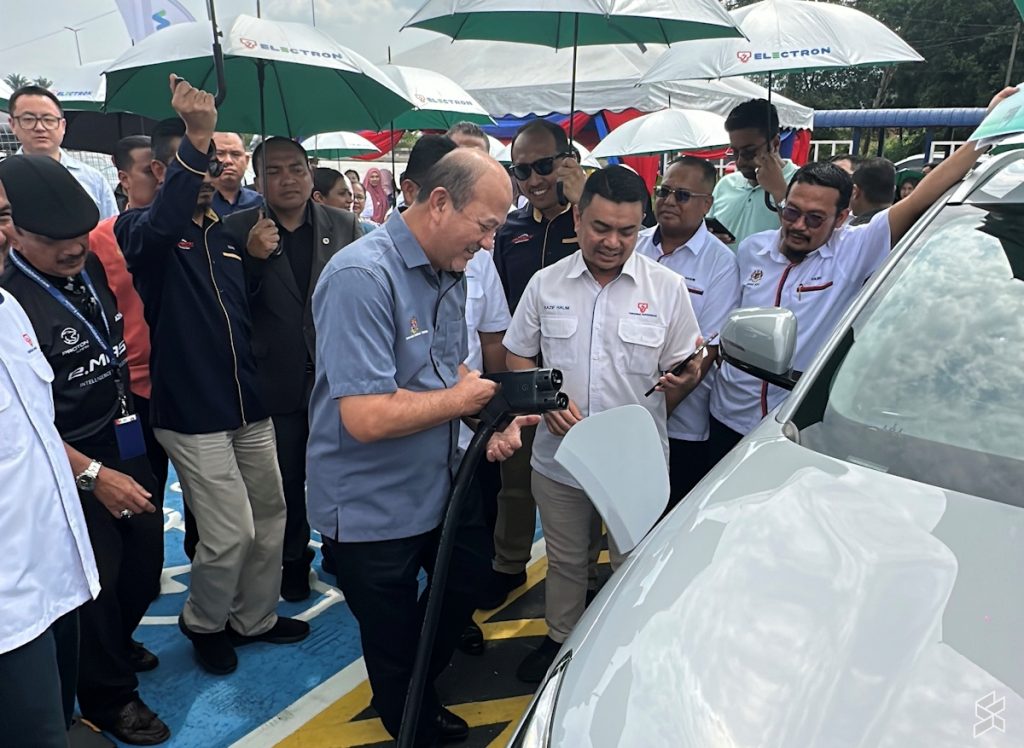
Naturally, we didn’t give it further thought – aside from being happy that there is now another decent high-speed DC charger available for EV owners within the proximity of the North-South Expressway (PLUS Expressway).
However, that changed earlier this week as representatives from PSAS, TNB, and the Department of Polytechnic & Community Colleges Education (POLYCC) came together to officially launch the TNB Electron charger. So, what’s with the fanfare?
Perhaps this is because the new EV charging spot in PSAS is not just “another” TNB Electron EV charger.
What does the new TNB Electron charger mean for PSAS?
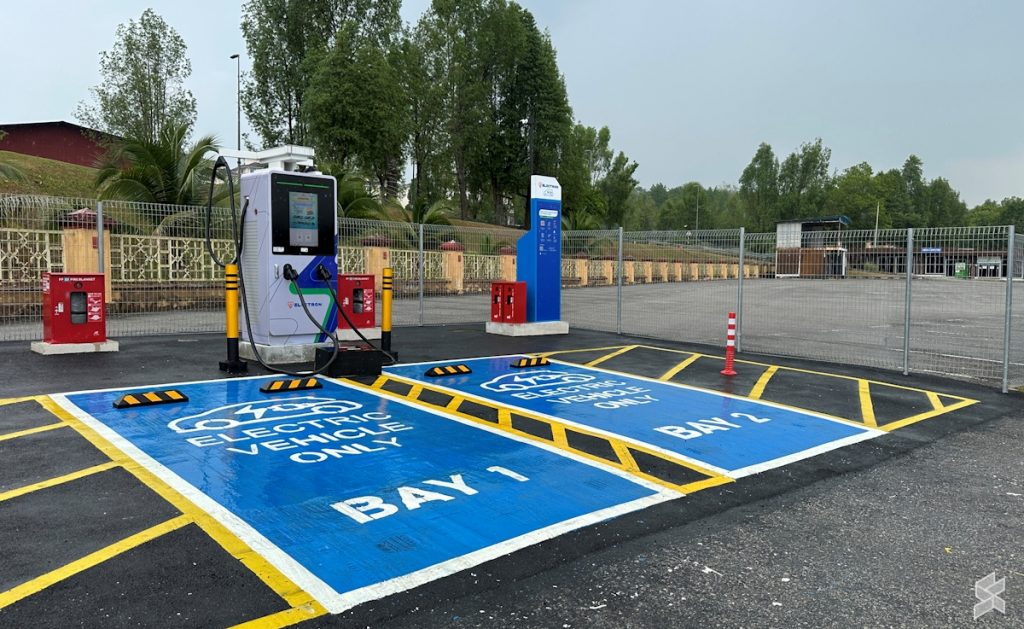
Aside from serving EV owners within the Muallim district and the nearby NSE, the deployment of the TNB Electron DC charger at PSAS also serves another purpose, which is to augment the EV technology training ecosystem at the Polytechnic Centre of Technology Automotive and Manufacturing (POLCAM) in PSAS.
In other words, the deployment allows the polytechnic to obtain first-hand knowledge regarding the deployment, usage, and maintenance of EV charging infrastructure. For example, TNB Electron has provided training to a group of lecturers from the polytechnic’s Mechanical Engineering Department and Electrical Engineering Department just before the installation of the charger took place.

This is being done as part of the polytechnic’s Lecturer Industry Attachment Program (SIP). According to the Program Director of the EV Project Management Office (PMO) at TNB, Wan Ahmad Zam Zam Wan Abdul Wahab, PSAS students might be able to obtain similar hands-on experience as well, if there is opportunity arises in the future.
TNB Electron PSAS is also the first high-speed EV charger to be deployed at a local polytechnic. The idea to install a TNB Electron charger at PSAS was originally conceived in 2023 during an industry engagement session between both parties, although the actual on-site deployment only picked up between March and June this year.
Meanwhile, TNB Electron has no plans to install a charger at other polytechnics for the time being; however, the CPO remains open to future collaborations.
The first public DC charger at Automotive Hi-Tech Valley?
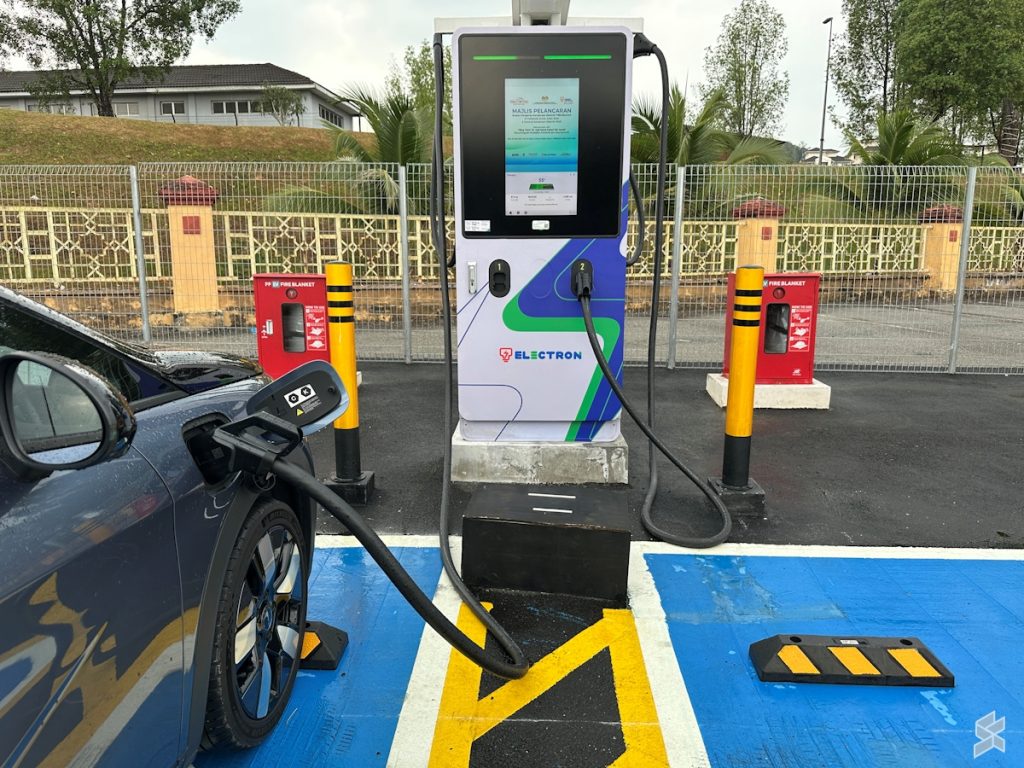
When we looked at the location of the charger and the surrounding area, we noticed several interesting facts. One, the TNB Electron PSAS is currently the only DC charger in the whole Muallim district that is not on the PLUS Expressway.
Among the towns that are under the Muallim district are Slim River and Tanjung Malim, with the latter being the home of Automotive Hi-Tech Valley (AHTV). By that, TNB Electron PSAS is essentially the closest that AHTV has to a public DC charger at the moment.
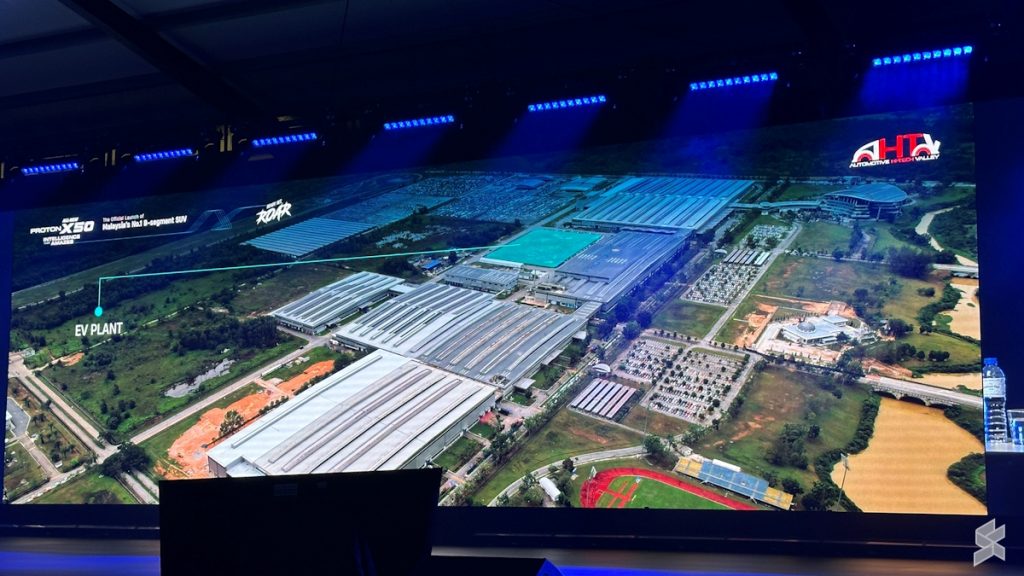
We foresee that the charger might see an increase in activity soon since TNB Electron PSAS is only 10 minutes away from Proton’s manufacturing facility at AHTV. The facility houses the national automaker’s new EV plant, which will be operational by the end of this year.
TNB Electron PSAS from the perspective of EV users

Aside from serving EV owners in Muallim district and AHTV, the TNB Electron PSAS can serve as a viable alternative to popular EV chargers on the PLUS Expressway, such as those in Behrang Layby Northbound and Southbound rest areas.
This is given its proximity to the Behrang Toll Plaza, which is just 5 minutes away from the polytechnic, and this allows it to be accessible from both directions of the highway. The Autel MaxiCharger DC Fast charger that TNB Electron deployed in PSAS has two charging nozzles and is actually capable of supporting a DC charging speed of up to 160kW according to its label, but has been tuned down to deliver a DC charging speed of up to 120kW instead.
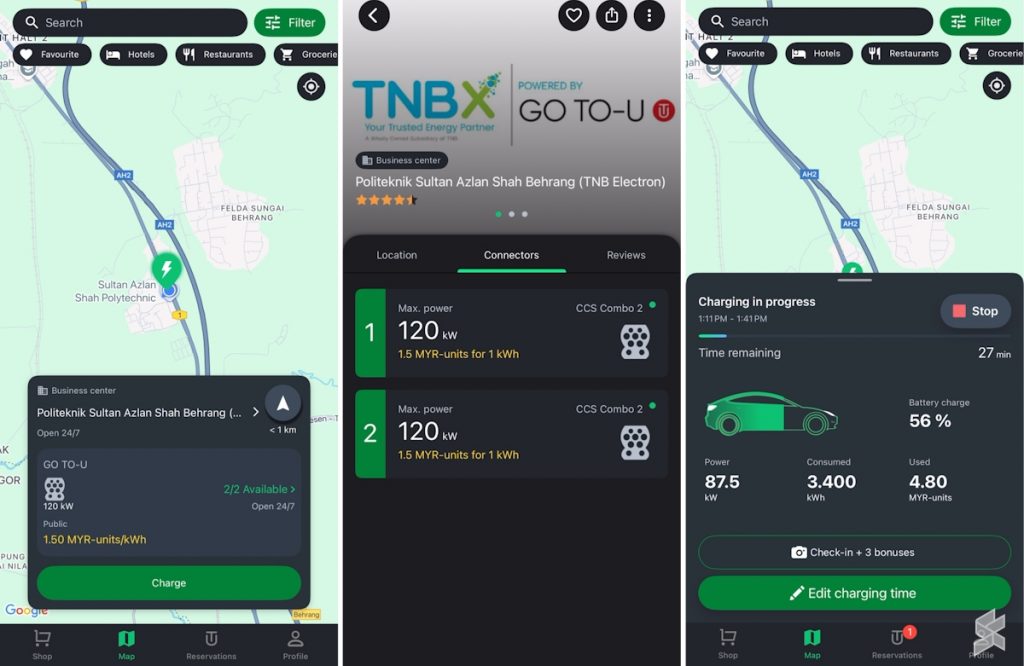
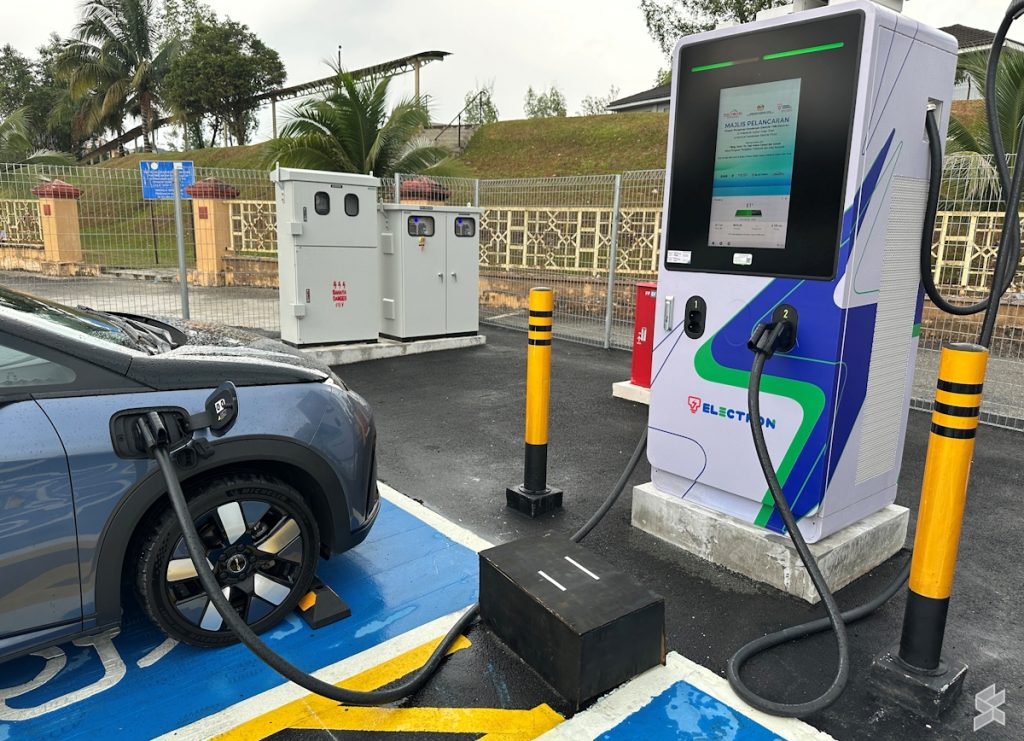
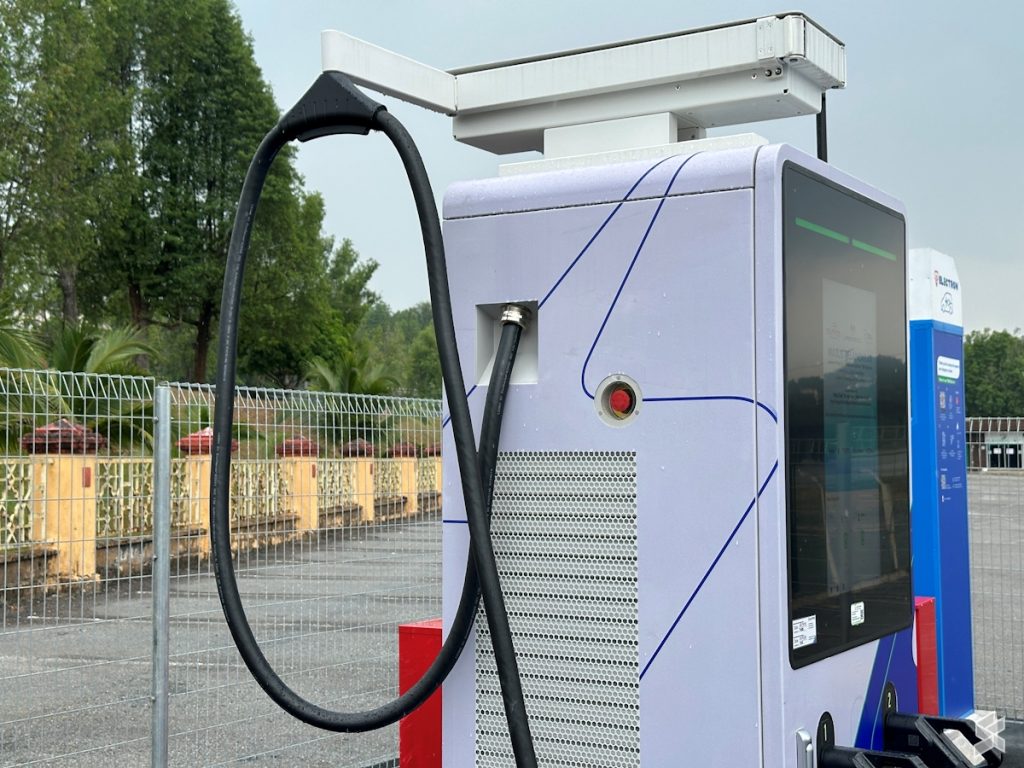
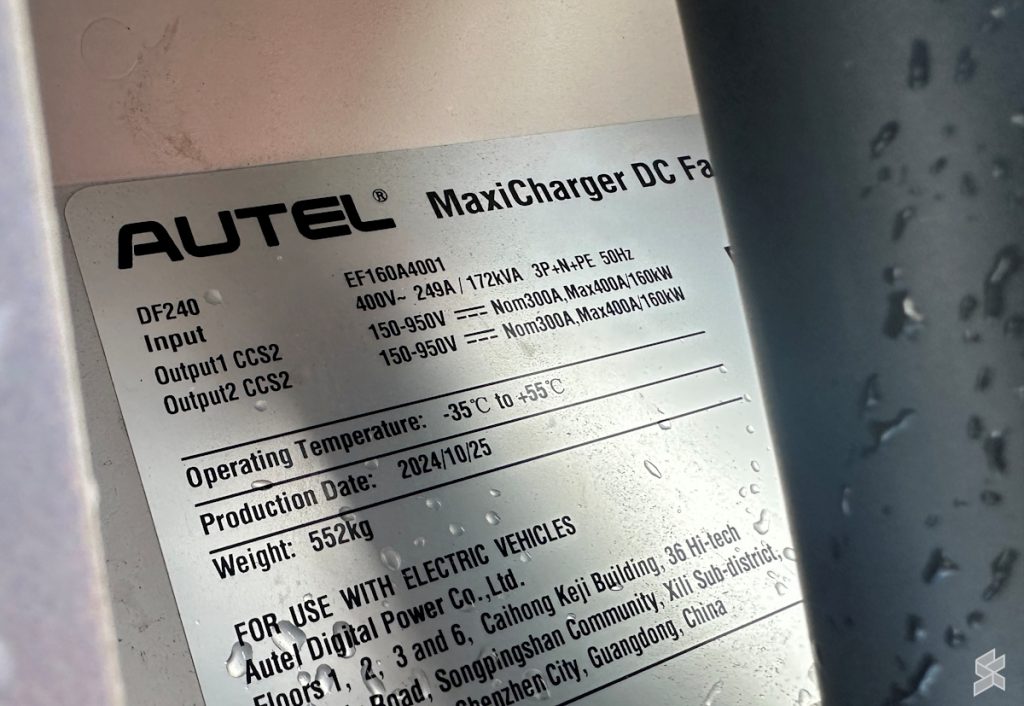
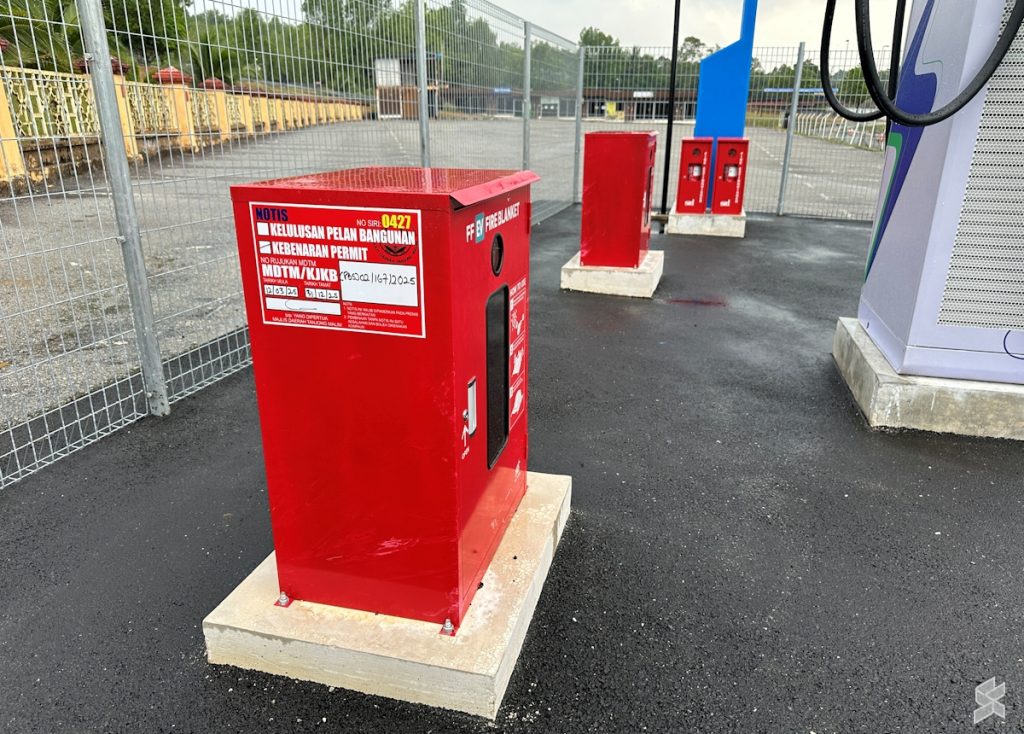
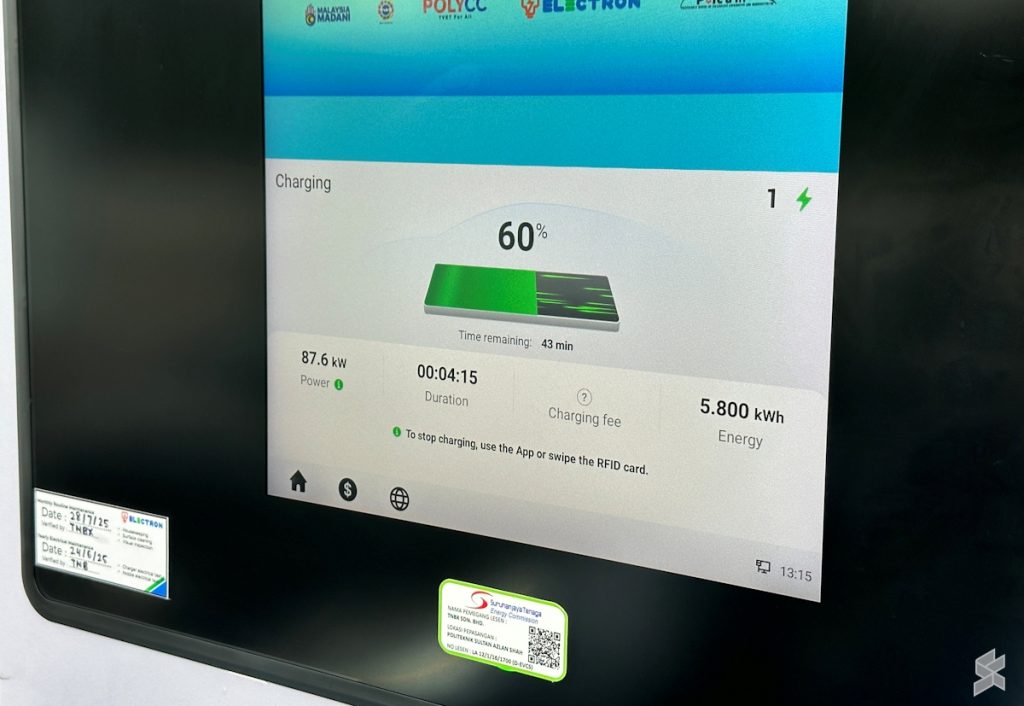
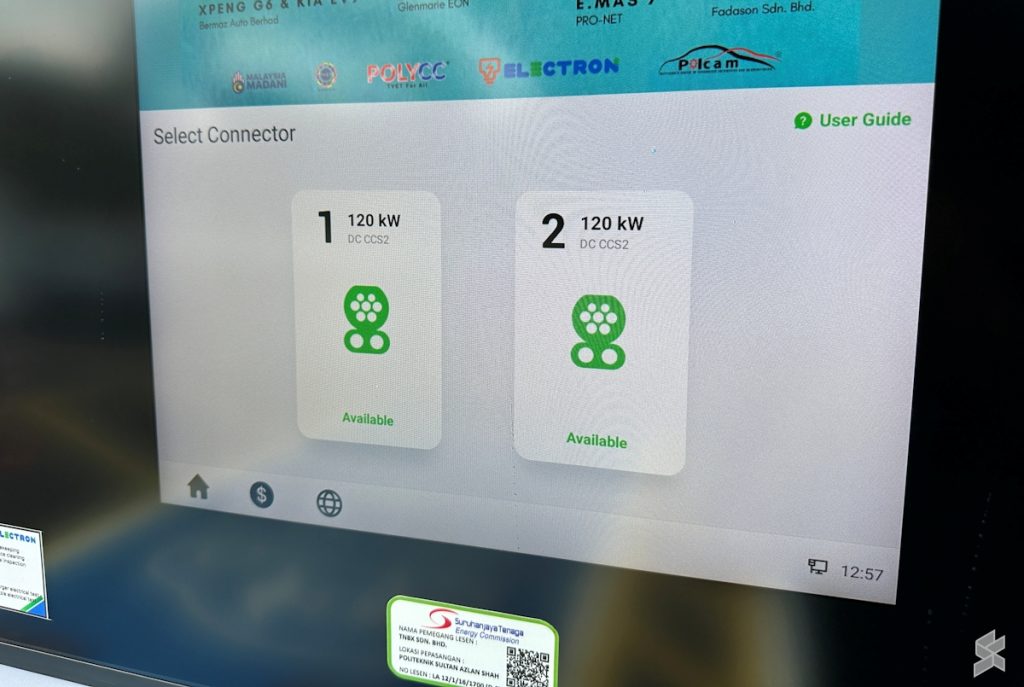
Priced at RM1.50 per kWh, it can currently be activated with the Go To-U app, although TNB Electron is already planning to implement a card payment terminal for the charger in the near future. The charger is located near the PSAS entrance, but is still accessible to the public 24/7.
What’s next for TNB Electron?
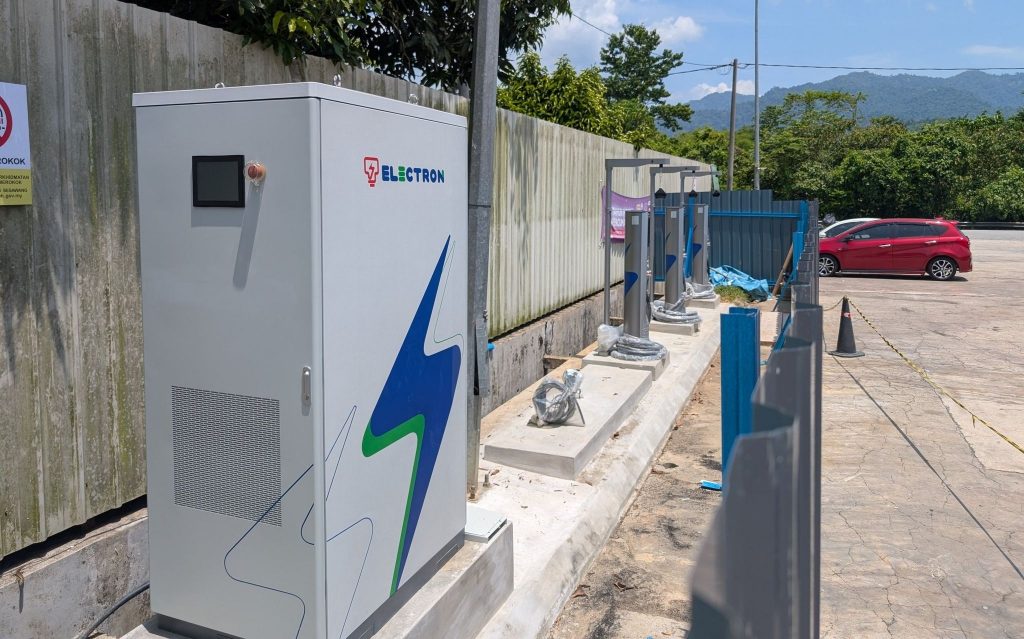
As of July 2025, TNB Electron has 42 public charging points in 20 locations across Peninsular Malaysia. The CPO is ambitiously looking to increase this number to over 200 charging points by the end of this year.
While TNB Electron didn’t make any additional announcements during the launch of its new charger at PSAS, we have noticed several movements that may indicate what the CPO has in store within the next few months.
Leading the list is the recent discovery of the TNB Electron station that is currently under construction in Petron Batu Melintang at Jeli, Kelantan. Once completed, it will become the first public EV charger within the East-West Highway (Gerik-Jeli Highway), which is the only major interstate route in Peninsular Malaysia that is still void of any public EV chargers.

We also noticed that the TNB EV PMO team had a meeting with the Kemaman District Officer, Ahmaz Nazwawi Harun, last month to discuss a variety of subjects, including EV charging infrastructure. Just like Muallim, the Kemaman district does not have any public EV chargers, except for several chargers at Perasing R&R on the East Coast Highway (LPT2).
So, perhaps the meeting will lead to the deployment of EV chargers in Kemaman? We shall see.
As of late, TNB Electron has been looking into underserved areas, which include Gurun R&R, Petron Selising and Petron Kg Gemuroh. TNB has also previously said that TNB Electron is going to deploy 200kW DC chargers at the BHPetrol stations on Karak – KL Highway and the Ladang Bikam R&R Northbound on the PLUS Highway.


